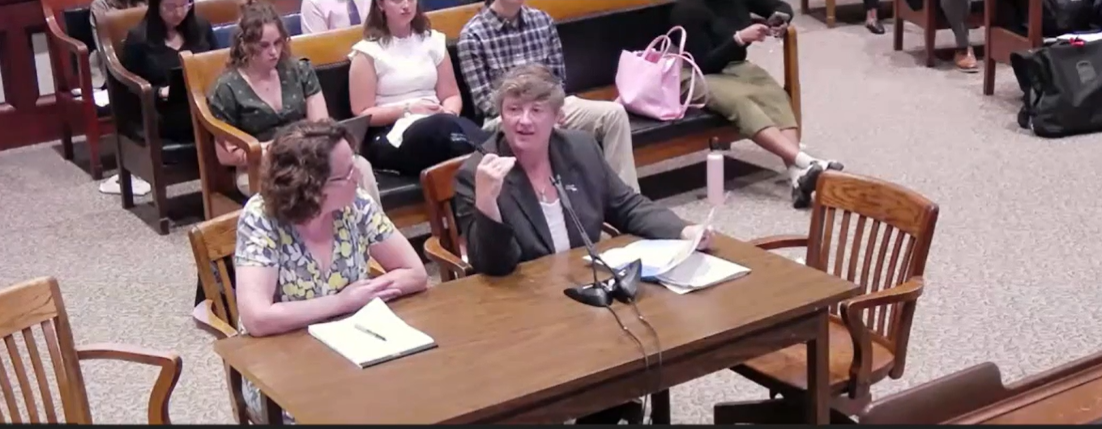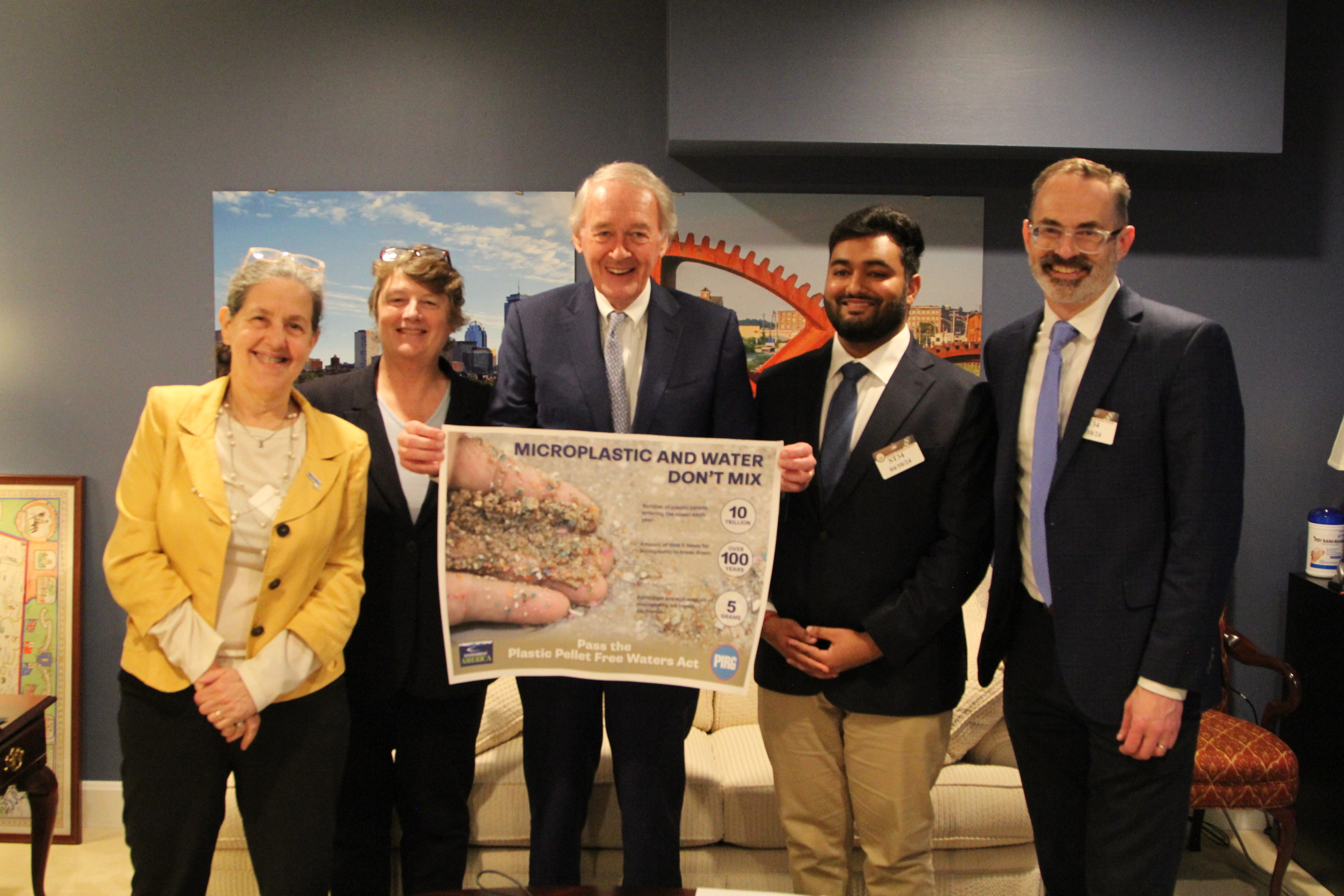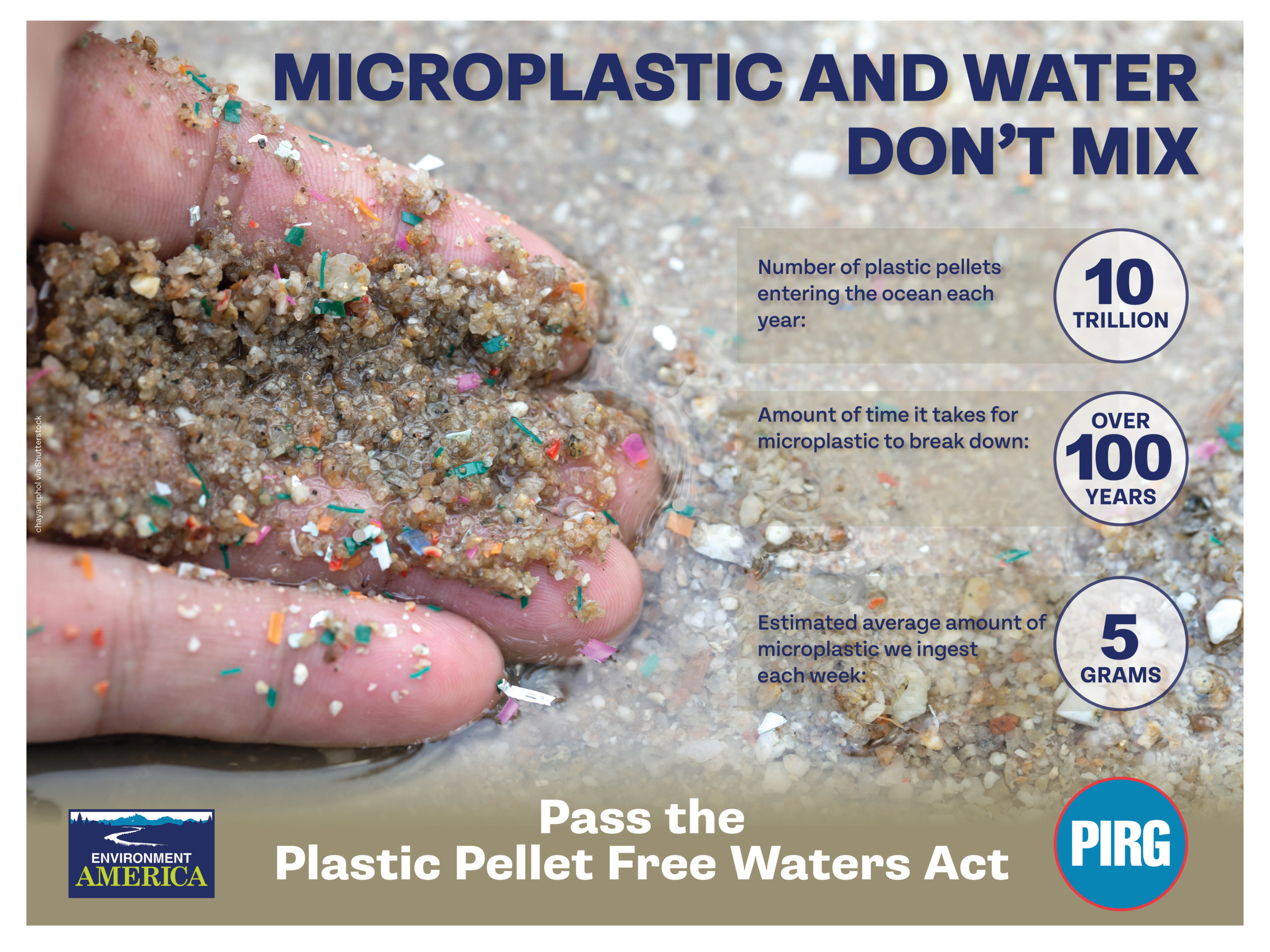
MASSPIRG urges lawmakers to ban PFAS at State House hearing
State lawmakers consider bill to ban toxic PFAS.

Testifying before the legislature’s Joint Committee on Public Health, MASSPIRG urged the committee to act quickly to pass the Act to protect Massachusetts public health from PFAS (S1356/H2197) filed by Senator Cyr (Truro) and Representative Kate Hogan (Stow). The bill would phase out PFAS in most products, cut industrial discharges of PFAS; and set up a fund to help communities test and treat for PFAS in drinking water, soil, and groundwater.
PFAS are a class of over 12,000 synthetic petrochemicals that help products resist heat, water, grease and stains. The downside is that PFAS are toxic at very low levels, increasing risk of cancer, immunosuppression, birth defects, colitis, and other diseases.
People are exposed by drinking and eating food and water that has been contaminated and using products with PFAS. PFAS in products escapes into air and dust, which we breathe in. When products containing PFAS are manufactured and disposed of, PFAS leach into the soil, groundwater and drinking water. In Massachusetts, at least 169 public water systems in 95 cities and towns, and many private wells, have exceeded the state’s legal limit (Maximum Contaminant Level) for PFAS.
“The most important part of the bill is that it “turns off the tap” of toxic PFAS by banning its use in almost all products,” said Deirdre Cummings, Legislative Director, MASSPIRG, “preventing the problem from getting even worse.”
All PFAS have a fluorine atom bonded to a carbon. This is one of the strongest bonds in nature — and, as a result, PFAS chemicals are extraordinarily persistent. Known as ‘forever chemicals’ they never fully break down, remaining in the environment for thousands of years.
MASSPIRG shared with the committee our new report, The Threat of “Forever Chemicals, which outlines a comprehensive set of recommendations for state and federal policymakers to address the threats that PFAS pose.
Topics
Updates

Energy Conservation & Efficiency
Groups to Congress: oppose attacks on energy efficiency

Energy Conservation & Efficiency
Department of Energy finalizes water heater efficiency standards

MASSPIRG goes to Washington to tackle plastic pollution and energy waste

Lobby day secures bipartisan support for the Plastic Pellet Free Water Act

Stop The Overuse Of Antibiotics